News
BBC starts Igbo and Yoruba services in Nigeria
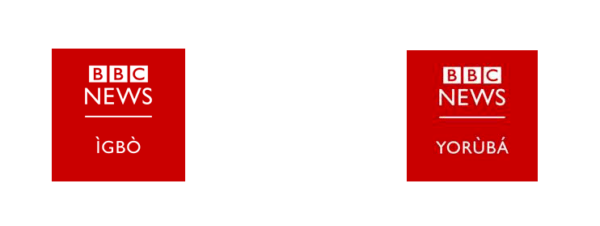
Two new language services have been launched by the BBC World Service for Igbo and Yoruba speakers in Nigeria and West and Central Africa.
Their digital content is mainly aimed at audiences who use mobile phones.
Igbo is primarily spoken in south-east Nigeria and Yoruba in the south-west, as well as in Benin and Togo.
The new services are part of the World Service’s biggest expansion since the 1940s, following a government-funding boost announced in 2016.
In total, 12 services are being launched by the BBC in Africa and Asia.

Igbo – seven things
- Best-known Igbo speaker was Chinua Achebe, regarded as the founding father of African literature
- Estimated to have more than 30 million speakers, mainly in south-eastern Nigeria
- A word with the same spelling can have different meanings, for example “akwa” is bed, egg, cloth or burial rights – depending on its tone
- An Igbo secessionist movement sparked a brutal civil war in 1967
- The caffeine-rich kola nut is all important in Igbo culture – always offered to welcome guests
- A famous proverb: “Onye wetara ọjị, wetara ndụ” meaning: “He who brings kola, brings life”
- bbc.com/igbo is also on Facebook and Instagram

The BBC’s expansion in Nigeria – Africa’s most populous country where more than 200 languages are spoken – began last year with BBC Pidgin, which targets those who use the regional English-based lingua franca.
It is primarily an oral language, without a standard agreed written form.
The BBC Igbo and Yoruba teams have also faced challenges to standardise their written languages for modern audiences – and have sought advice from academics.
“Yoruba can be very confusing for younger readers because it has so many inflections, so we using a less complex system to appeal to them,” says Yoruba service editor Temidayo Olofinsawo.

Yoruba – seven things
- Best-known Yoruba speaker is Wole Soyinka, Nobel Prize-winning playwright and poet
- More than 40 million speakers, mainly in south-western Nigeria
- A word with the same spelling can have different meanings, for example “owo” is money, honour, hand or broom – depending on the tone
- More people practise the traditional Yoruba religion in South America and the Caribbean than in Nigeria – as a result of the Transatlantic Slave Trade
- A thriving Yoruba film and music industry powers Nollywood
- A famous proverb: “Ile laawo k’a to s’ọmọ lorukọ” meaning: “You should name your child to reflect your family background”.
- bbc.com/yoruba is also on Facebook and Instagram

There are very few news publications in Igbo and Yoruba in Nigeria, so it is hoped the new BBC services will be popular with Nigerians at home – and in the diaspora.
“This is the first time the Igbo language will be written and broadcast for international consumption,” says Adline Okere, editor of the Igbo service.
“Igbos are known for their entrepreneurial spirit – and they are spread all over the world,” she says.
What is on offer?
The teams will produce a twice daily bulletin of BBC Minute – an audio round-up of stories as well as news, analysis, explainers and features on the web and social media.
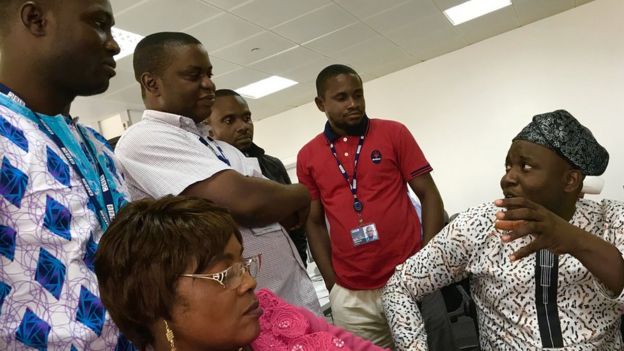
The BBC’s head of West Africa, Oluwatoyosi Ogunseye, says the focus will be on original journalism.
“Delivering content and engaging with the Igbo and Yoruba audiences in their mother tongues is authentic, exciting and refreshing,” she says.
“We have had BBC Hausa [mainly spoken in northern Nigeria] for decades and we’ve seen the impact it had with its audience.
“When we look at Nigeria we have a multicultural society and the BBC felt that it was very important to give all the cultures a platform to communicate, a platform to interact.”
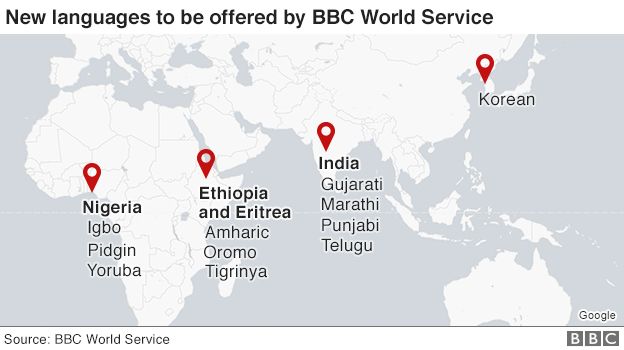


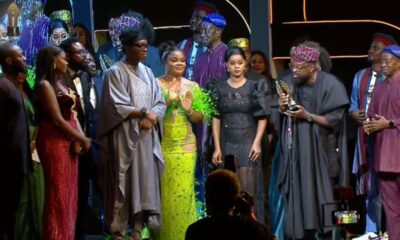
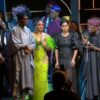
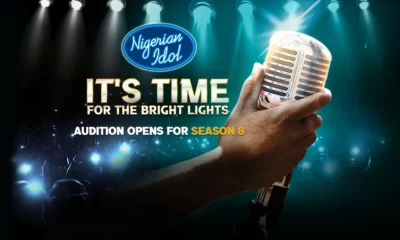







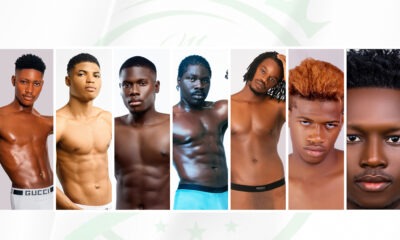







Recent Comments